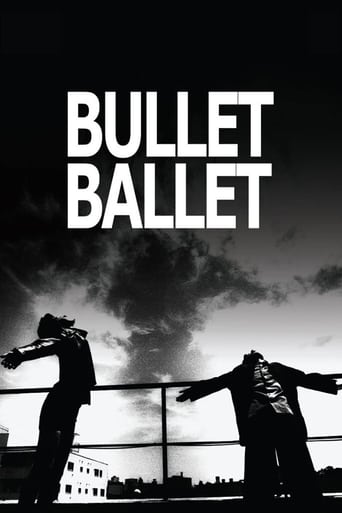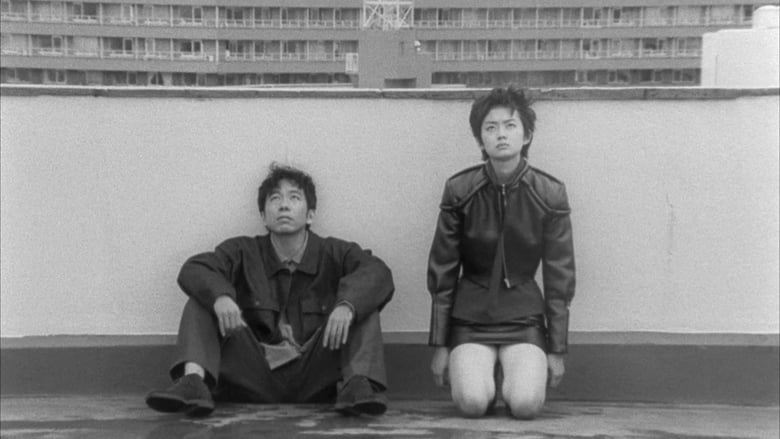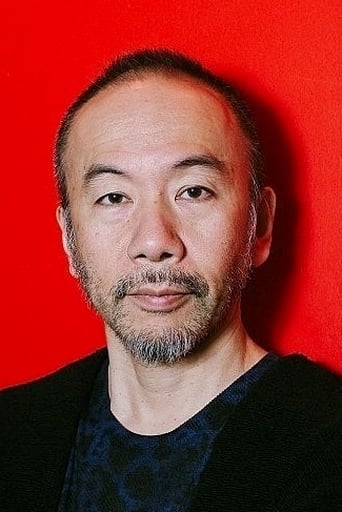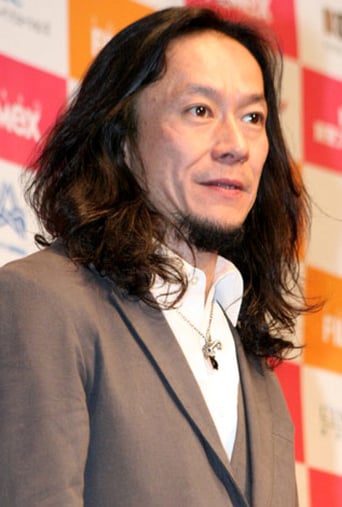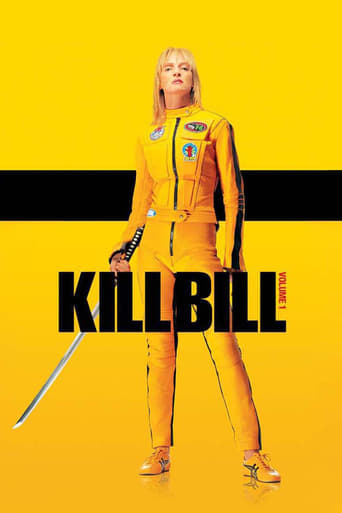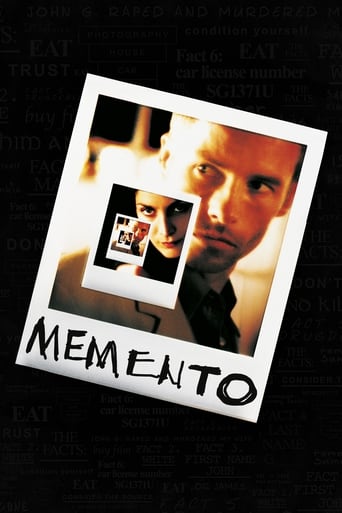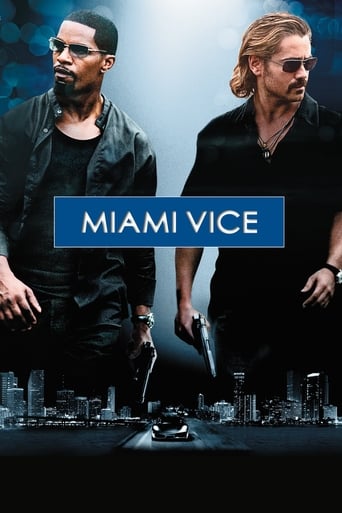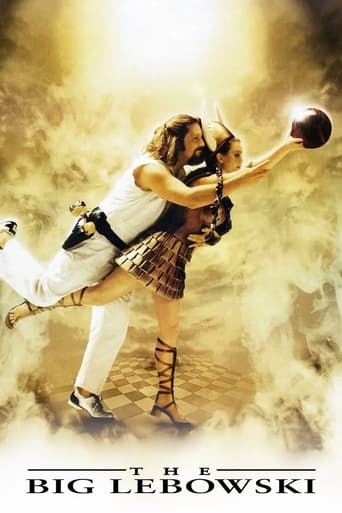Bullet Ballet (1998)
After his girlfriend commits suicide, a man becomes embroiled in gang warfare attempting to obtain a gun in hopes to kill himself.
Watch Trailer
Free Trial Channels
Cast


Similar titles
Reviews
Most undeservingly overhyped movie of all time??
Easily the biggest piece of Right wing non sense propaganda I ever saw.
Let me be very fair here, this is not the best movie in my opinion. But, this movie is fun, it has purpose and is very enjoyable to watch.
Great example of an old-fashioned, pure-at-heart escapist event movie that doesn't pretend to be anything that it's not and has boat loads of fun being its own ludicrous self.
This is my third film from this director, following the two TETSUO efforts; he seems to have quite a following, but I haven’t been impressed with what I’ve seen so far – on the contrary, the combination of flashy style and intense approach resulted not only in being off-putting but, for this viewer, it provoked boredom more than anything else! Anyway, while in those two earlier films, the visceral tone and unrelenting bleakness could perhaps be excused given their sci-fi/body-horror plot lines, these come off as mere hollow gestures in the juvenile delinquent milieu depicted here! The plot, if so it can be called, concerns a middle-aged man (played by the director himself!) who, in trying to come to terms with his fiancée’s baffling suicide, frantically tries to obtain a similar weapon (presumably in order to join her in the afterlife). However, during his nightly rounds of the city’s back streets, he runs into a gang of small-time (read: low-life) thugs who rough him up – so, he then finds a new purpose for his gun! Still, through his ambivalent relationship with a sluttish and tomboyish girl in the group, he’s drawn into open warfare between clans – and even intercedes for them when a hit-man turns up to exterminate them at their hide-out! While such a narrative could have spelt considerable visual excitement and even thematic depth, the grungy feel of it all (the ugly black-and-white cinematography of an industrial wasteland setting – which can now be seen as typical Tsukamoto - rapid cutting, noisy soundtrack) plus the obnoxious characters prevents audience engagement for practically the entire duration (not that the ostensible bond between the hero and the girl is handled satisfactorily, or in any way comprehensively): mercifully, the thing lasts for just a little over 80 minutes! Finally, I have to say that, while I’m generally a devoted fan of Japanese cinema, there are certain elements inherent in the Oriental outlook (usually having to do with nihilistic violence and/or mundane melodrama), which I haven’t been able to get into, no matter how hard I try…
Bullet Ballet (1998) is one of Shinya Tsukamoto's more personal and enigmatic films, attempting, as it does, to merge elements of narrative and character alongside his usual preoccupations with visual metaphor and cinematic experimentation. The manner in which these two very distinctive styles come together isn't always as seamless as many of the director's other films, with the juxtaposition of these two worlds creating a plot line and a sense of character motivation that is often quite hard to follow, no doubt enlivening and alienating the majority of its viewers in equal measures. Arriving home from work one night, TV commercials director Goda (played by Tsukamoto himself) is shocked to discover that his long-term partner Kiriko (Kyoka Suzuki) has committed suicide. Unable to cope with this tragic turn of events, Goda becomes obsessed with the idea of owning a Chief Special the same handgun used by Kiriko in her own death. However, after wandering the streets of Tokyo looking for an arms dealer, he stumbles into a dark alleyway where he meets Chisato (Kirina Mano), a waif-like street punk who Goda saved from the path of an oncoming train during a previous encounter. Concerned for her well-being, he tries to give her a lecture but instead, is beaten and robbed by members of Chisato's gang here led by the charismatic Goto (Murase Takahiro). After this encounter, Goda's pistol obsession becomes inexplicably intertwined with this gang of street punks, until events start to spiral desperately out of control for all involved.Like many of Tsukamoto's other films, in particular the preceding Tokyo Fist (1995) and his later masterworks A Snake of June (2002) and Vital (2004), the film focuses on the idea of identity loss - as we are introduced to a character who, through a series of unfortunate events partially described above, can no longer understand his place in the world and attempts to reclaim his identity through primal violence. With this in mind, some have compared the film to Scorsese's masterpiece Taxi Driver (1976); however, the comparison is really quite superficial. Bullet Ballet lacks the sense of spiralling catharsis so central to Taxi Driver's gun-toting loner Travis Bickle, instead capturing the aimless need for something anything to give the protagonist's life a sense of purpose. The gun becomes a god-like symbol of power for Goda; something that can command and destroy without even being used. However, as the film progresses, it becomes clear that it is not the gun that has re-invigorated Goda's design for life, but the extraordinary, life-threatening scenarios he has witnessed in the pursuit of the weapon in question. Like Tsuda from Tokyo Fist or Rinko from A Snake of June, Goda, Chisato and Goto must enter into a series of self-inflicted psychological tests that will in effect shock them out of their sense of numbed, social paralysis - almost destroying them before they can truly feel whole. These are classic Tsukamoto ideas, prevalent in even his first acknowledged feature film, Tetsuo: The Iron Man. However, whereas that film and his subsequent projects painted in broad-strokes; combining the themes and ideas with heavy visual symbolism and bold experimentation, Bullet Ballet is much more conventional in scope. At times it was reminiscent of David Cronenberg at his most clinical and detached; recalling films such as Dead Ringers (1988) or his controversial adaptation of Crash (1997), which again, has a similar thread about discovering your true self and your lust for life by putting it (literally) on the line.Tsukamoto captures the film in a noir-like black and white; creating a world literally without colour that perfectly underpins the feckless "do or die, life or death" attitude expressed by Goto's gang of misguided young tear-aways. Occasionally the director indulges in a moment of intense visual expression - recalling his more typical work with the use of rapidly edited montages, skewed camera perspectives and that pounding industrial soundtrack - but for the most part, the approach is fairly restrained; recalling his more recent film Vital and the earlier, more subdued moments of A Snake of June. As I said before, the film doesn't flow as seamlessly as I would have expected; often confounding viewers by going in directions that you wouldn't normally expect, which can be quite jarring and disconcerting for those of us trying to pick apart the motivation of the characters. As a result the film doesn't quite have the same impact of Tokyo Fist or A Snake of June, seeming somewhat formless (which is a real failing given the film's reliance on narrative over visual spectacle). That said; it's in no way a "bad film", but rather, one that will test the patience of many viewers expecting something as frantic and ballistic as the more iconic Tetsuo films, offering instead a story that is emotionally rich, thematically enigmatic, but at times, occasionally quite thin. If you're already a fan of Tsukamoto's work then I would say stick with it regardless. The film offers a number of standout set-pieces, from the initial scenes of Goda trying (and often failing in true deadpan fashion) to buy the weapon, to a series of fairly frantic action sequences that almost recall the Tsukamoto that many will be more familiar with.Bullet Ballet was a bold departure for Tsukamoto; giving us more plot and deeper characters, as well as one of his most understated and sympathetic performances in the lead role (Tsukamoto, not only a great film director, editor and cinematographer, but also a fairly underrated actor as well). It doesn't quite come together as seamlessly as it should, leaving many loose threads and a myriad of unanswered questions, but also offers some truly intense and truly astounding individual sequences. A flawed minor-masterpiece then, from one of contemporary cinema's true originals.
On returning home from work Goda learns from the police that his long-time girlfriend has just committed suicide with a gun obtained from yakuza she apparently befriended. Enraged, obsessed and increasingly desperate Goda tries to obtain a gun from black market and find the yakuza he holds responsible. Along the way he runs into a gang of middle class kids that had robbed him earlier and develops a companionship of sorts with the one female gang member Chisato who has similar selfdestructive tendencies as himself.Sounds fairly conventional so far, doesn't it? But Bullet Ballet doesn't quite play out like a conventional revenge story. With a title like Bullet Ballet one might expect to see heroic gunplay, but there are only two guns in the movie and we learn Goda isn't terribly good at dancing the ballet. His efforts at trying to obtain a proper handgun are repeatedly rather comically frustrated and when he finally does get his hands on one, he still is no master killer. I was a bit puzzled by this aspect but then realized the director wanted him and his pursuit of revenge to look frustrating and pathetic. Goda is after all just a whitecollar worker and perhaps the director also wanted to question revenge. ***heavy spoilers*** Indeed in the end he doesn't get his revenge or even learn for certain why his girlfriend committed suicide. Goda and Chisato are forced to face their lives' emptiness and selfdestructiveness, but that also makes possible their redemption in another way. ***end heavy spoilers*** Tsukamoto's expressive and atmospheric visual style propels the kinetic movie. Frequently shaking and moving frantically his powerful black and white imagery hypnotizingly reflects Goda's despair and obsession, bleak urban Tokyo and the chaos and brutality of fights, but also a couple of rapturous moments of beauty such as Chisato playing in Goda's apartment. However some of the shots which cut briefly to the details of urban surroundings seem a bit unnecessary. The soundtrack consists mostly of industrial, metal and techno, but also two beautiful slow pieces towards the end, and it is good. The cast's performances are also good.
There's a feeling you get after watching "Bullet Ballet", and it's like the story is kind of incomplete. There's a lack of something, maybe a little information about the characters and their lives. That's a big burden and it doesn't matter how attractive is the look of the film with all those nebulous textures, it does not matter if Tsukamoto probes that he knows how to use the camera (although sometimes everything looks a little bit dizzy), 'cause if you don't have a story or a script, you got nothing.It's a short movie and still you feel like it will never end. That's what it happens when you don't have a clue about what's going on in the screen (shoots, gangs, suicide... ???).*My rate: 4/10

